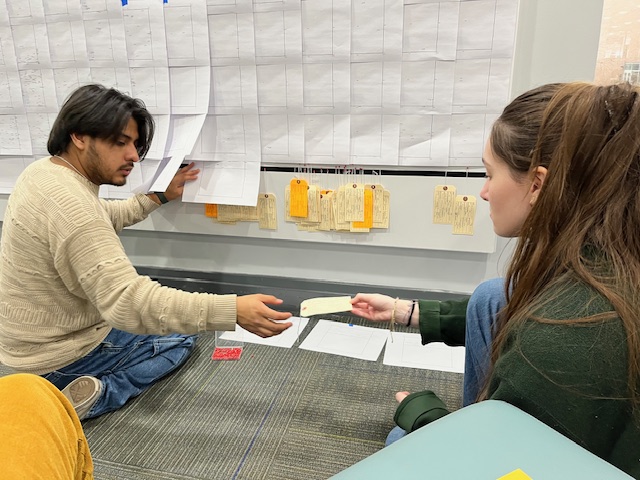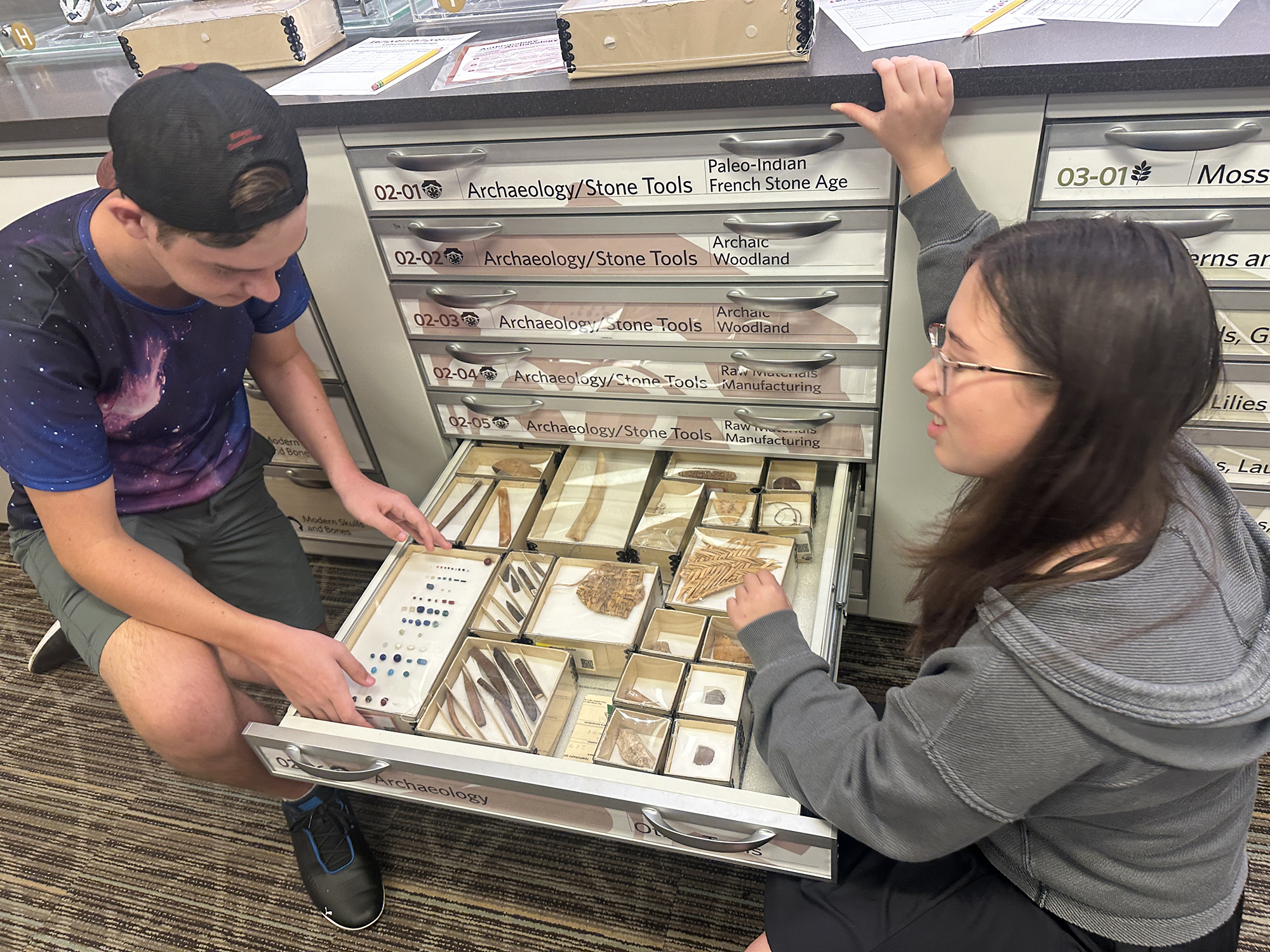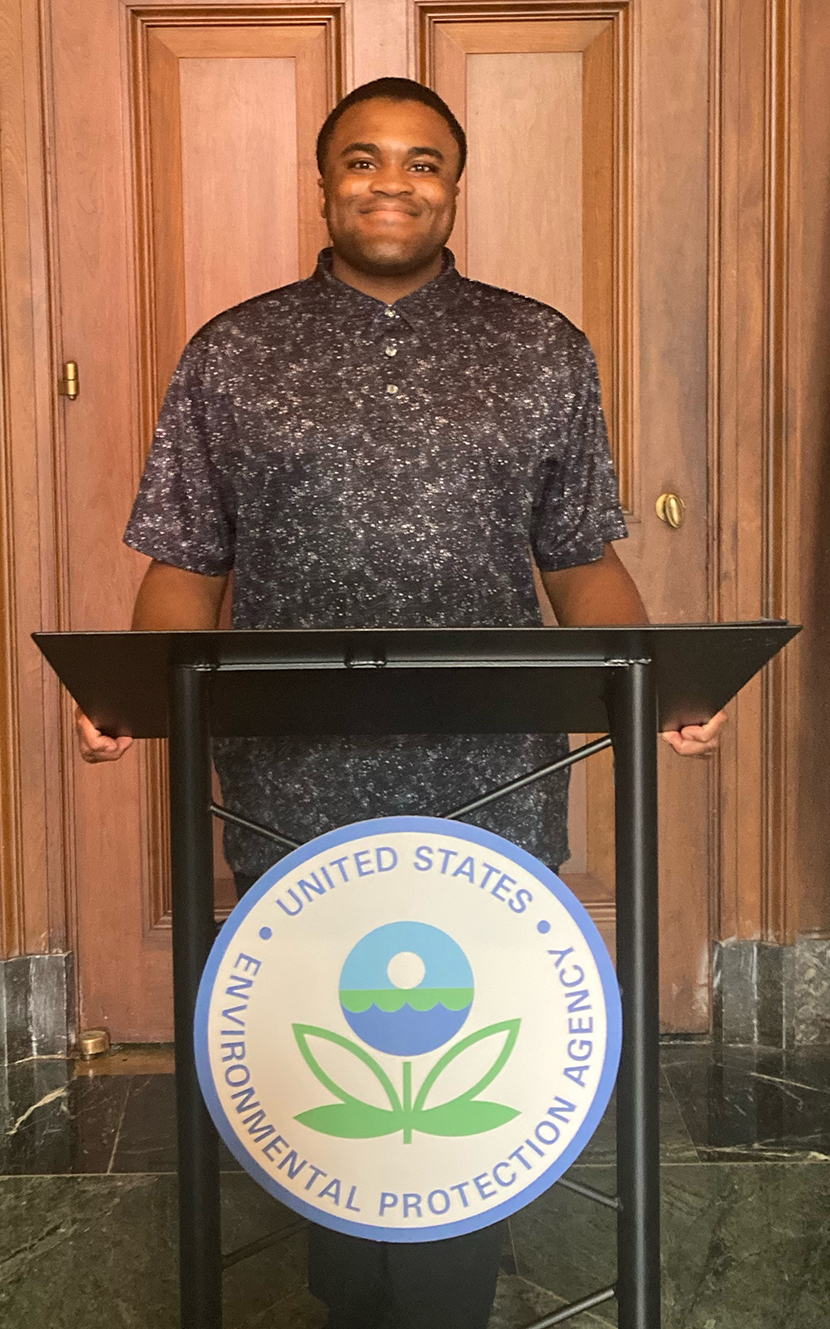Student Opportunities
Anthropology majors are encouraged to participate in experiential learning opportunities from faculty-led trips to internships to research projects. Funding is available to help offset the cost of experiential opportunities.
Find the Perfect Opportunity

Internships
- Work in the archaeology lab and contribute to cleaning, identifying, and cataloging artifacts from local research sites. Assist with lab analysis and research on materials.
- Join community engagement projects led by faculty that allow you to build and exercise your skills in participant observation, interviewing, survey work, and data analysis. Contribute to understanding and action around topics such as environmental justice, immigration, mass incarceration, and more.
- Pursue the Compleat Angler Fellowship Program for Ethnographic and Archaeological Research in the Chesapeake Bay region.
- Learn how to look for internships based on your skill set and interests.
- Work in the Washington College Geospatial Innovation Program (GIP).
- Arrange your own internship experience through your own connections, or by tapping into the Center for Career Development’s extensive network.

Research
- Work with faculty on their research.
- Gain practical experience through the Washington College summer field school in archaeology, experiencing all phases of archaeological fieldwork from site preparation through lab analysis. Learn survey methods, site reconnaissance and remote sensing technologies, excavation, recording, drawing, photography, and laboratory processing. Receive lectures, readings, and a field manual for your specific field school.
- Contribute to academic research papers, writing articles, and presenting at conferences. Students have been invited to present their research at conferences including the American Anthropological Association and Society for American Archaeology.
- Get into the field as soon as your first course. Class projects are often based in the lab or field.
- Complete a Senior Capstone Experience (SCE), pursuing independent research you’re interested in. SCE projects can take the form of almost anything, including a traditional thesis, or a film, museum exhibit, art exhibit, report, and more. Each project is accompanied by a written document discussing project and an oral presentation.
- Take advantage of research funds available through the anthropology department.
- Create your own research project. Support, financial or otherwise, is available across campus, including through the Hodson Collaborative Research Program or the Cater Society for Junior Fellows.
To get started thinking about what research you might be able to do at Washington College, review our faculty’s areas of expertise.

Get Involved
Build your résumé and expand your social circle simultaneously by joining clubs, honor societies, and more that help you connect with folks with similar interests.
- Hodson Collaborative Research Program
- Libby and Douglass Cater Society of Junior Fellows
- Phi Beta Kappa
- Lambda Alpha national anthropology honor society
- Clubs: Intercultural Ambassadors, Student Environmental Alliance
